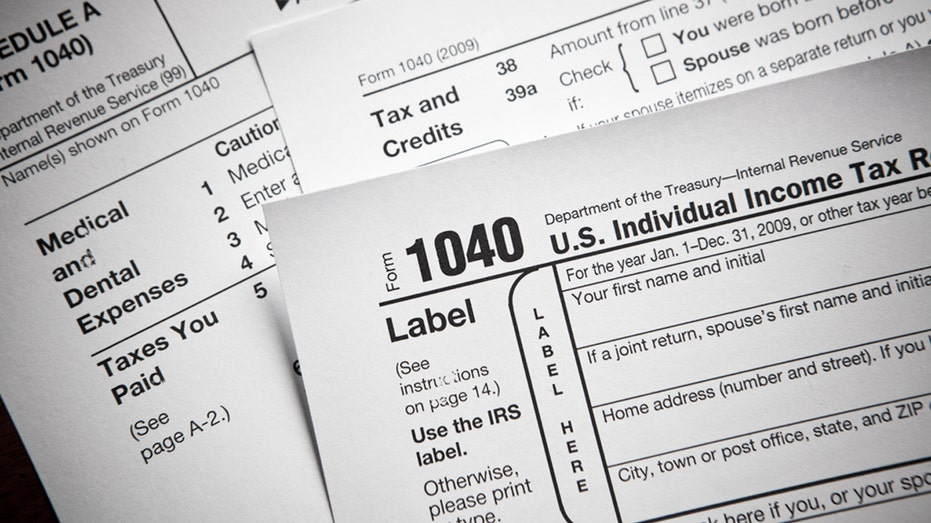IRS chief warns of 'enormous challenges' this tax-filing season
Rettig: This tax season is 'frustrating' for taxpayers and the IRS
Grover Norquist on taxes, possible expansion of IRS
Americans for Tax Reform President Grover Norquist on the debt ceiling, taxes, spending and infrastructure negotiations and the possible expansion of the IRS.
IRS Commissioner Chuck Rettig on Tuesday sounded the alarm over the agency's massive backlog of unprocessed returns, which he warned could lead to a "challenging" tax season.
In a op-ed for Yahoo News, Rettig acknowledged that millions of Americans are still waiting for prior years' tax returns to be processed and refund checks to arrive in the mail, but committed to "returning to normal inventory levels before next year."
"We have taken extraordinary measures to work through unprocessed returns and correspondence, including mandatory overtime by IRS employees, creating and redirecting surge teams to address the inventories, temporarily suspending certain automated compliance notices and, where possible, modernizing operating systems to accelerate the manual processing of inventories," he wrote.

IRS Commissioner Charles Rettig testifies during a Senate Finance Committee hearing June 8, 2021, on Capitol Hill. (Tom Williams-Pool/Getty Images / Getty Images)
Although Rettig said the IRS has already issued 4 million refunds worth about $10 billion so far, the tax-collecting agency is staring down a tax season that promises to bring complications and potential delays for taxpayers, given an IRS worker shortage, the Herculean task of administering millions of stimulus checks and adapting to other pandemic-related tax changes, and a massive backlog of unprocessed paper returns.
"Millions are waiting for their returns to be processed, and many won’t be able to reach us when they call with questions this filing season. This is frustrating for taxpayers and for us," Rettig wrote. "We want to do more, but we face great challenges."
TAX SEASON BEGINS TODAY: WHAT YOU NEED TO KNOW BEFORE FILING
He noted the agency is also grossly understaffed; it has 20,000 fewer staff than it did in 2010, and its budget is roughly $11.4 billion – 20% less than it was in 2010, when adjusted for inflation, according to the Congressional Budget Office. On top of that, more than 20% of the IRS customer service workforce has been unable to work for pandemic-related health reasons over the last two years.
"Without long-term, predictable funding, the IRS will continue to face severe limitations, unable to provide the service taxpayers deserve and need," Rettig added.

IRS headquarters building in Washington on April 13, 2014. (AP Photo/J. David Ake, File / AP Newsroom)
In a recent report to Congress, National Taxpayer Advocate Erin Collins estimated the IRS had a backlog of more than 8.6 million unprocessed individual income tax returns and 2.8 million business returns as of mid-December. It also had close to 5 million pieces of unanswered mail.
IRS TO START REQUESTING FACIAL RECOGNITION SOFTWARE TO ACCESS TAX RETURNS
By comparison, the IRS usually enters the tax-filing season with fewer than 1 million remaining items to address.
There are fresh challenges facing the IRS this year: Taxpayers will have to reflect the monthly child tax credit payments and the stimulus checks they received in 2021 on their returns, further complicating matters and increasing the likelihood of errors and delays in processing returns.
Taxpayers "should pay extra attention if they received Economic Impact Payments or an advance Child Tax Credit in 2021," Rettig wrote in the op-ed. "The IRS has sent out more than 150 million information letters this year. This will help assure information is reported accurately."

The IRS usually enters the tax-filing season with fewer than 1 million remaining items to address.
Experts have urged taxpayers to file their tax returns as soon as possible, noting that individuals do not need previous returns in order to submit their 2021 returns. Americans are encouraged to file electronically with direct deposit in order to avoid potential delays and receive their return within 21 days.
GET FOX BUSINESS ON THE GO BY CLICKING HERE
The tax-filing season will end on April 18 this year for most individuals, rather than the usual deadline of April 15, because that's when Emancipation Day will be observed in Washington, D.C.
Taxpayers can request an extension online by filling out Form 4868 using the IRS’ "Free File" tool. They need to submit the form by April 18, or print the form and mail it to the IRS address for their state, making sure it's postmarked by April 18.





















